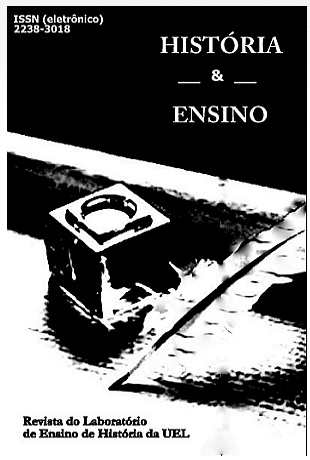The invisibility of brazilian black culture through the "miscegenation" speech
DOI:
https://doi.org/10.5433/2238-3018.2020v26n1p226Keywords:
Miscegenation, Brazil, Speech, RacismAbstract
The main objective of this article is to problematize how the idea of miscegenation is often anchored in a veiled way in an attempt to make black culture invisible in Brazil. The text now presented tries to problematize how much the ideal of racial democracy emerges from the veiled discourse of a mestizo-harmonious country and presents the most expressive Brazilian intellectuals, among them Cavalleiro (2001) and Silva (2014), who discuss the process of laundering of Brazilian society. However, it is in the light of Kabengele Munanga that we try to unveil this illusory and superficial discourse of miscegenation. The methodological reflections that guided the writing of the article emerged from systematic readings and discussions in the discipline Education, Cultures and Diversities, taught in the Graduate Program in Education at the Federal University of Amapá. For us, miscegenation does exist, but it has been used as an ideological and fallacious discourse throughout history in order to maintain the power of the dominant and white elite.
Downloads
References
BRASIL. Instituto Brasileiro de Geografia e Estatística (IBGE). Pesquisa nacional por amostra de domicílios: síntese de indicadores. Rio de Janeiro: IBGE, 2019. Disponível em: http://biblioteca.ibge.gov.br. Acesso em: 10 jan. 2020.
CAVALLEIRO, Eliane (org.). Racismo e anti-racismo na educação: repensando nossa escola. São Paulo: Selo Negro, 2001.
DA MATTA, Roberto. O que faz brasil, Brasil?. Rio de Janeiro: Rocco, 1986.
FANON, Frantz. Peles negras, máscaras brancas. Salvador: EDUFBA, 2008.
HARRIS, Marvin. Padrões raciais nas Américas. Rio de Janeiro: Civilização Brasileira, 1967.
MUNANGA, Kabengele. Negritude: usos e sentidos. São Paulo: Editora Ática, 1986.
MUNANGA, Kabengele. Rediscutindo a mestiçagem no Brasil: identidade nacional versus identidade negra. 3. ed. Belo Horizonte: Autêntica, 2008.
MUNANGA, Kabengele; GOMES, Nilma (org.). O negro no Brasil de hoje. São Paulo: Global, 2006.
NASCIMENTO, Abdias do. Processo de um racismo mascarado. Rio de Janeiro: Paz e Terra, 1978.
ROQUETTE-PINTO, Edgar. Ensaios de Antropologia Brasiliana. Rio de Janeiro: Editora Nacional, 1978.
RODRIGUES, Nina (1894). As raças humanas e a responsabilidade penal no Brasil. 3. ed. São Paulo: Cia Editora Nacional, 1938.
SILVA, Tomaz Tadeu (org.). Identidade e diferença: a perspectiva dos estudos culturais. 14. ed. Petrópolis: Vozes, 2014.
TORRES, Alberto. A organização nacional Brasília. DF: EdUnB, 1982.
Downloads
Published
How to Cite
Issue
Section
License
Copyright (c) 2020 História & Ensino

This work is licensed under a Creative Commons Attribution 4.0 International License.
História & Ensino adota a licença CC-BY esta licença permite que os reutilizadores distribuam, remixem, adaptem e criem a partir do material em qualquer meio ou formato, desde que a atribuição seja dada ao criador. A licença permite o uso comercial.























